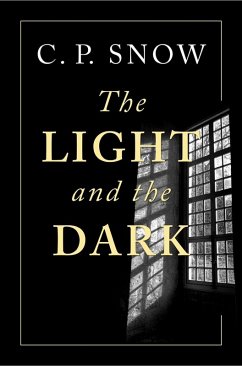Opening in Cambridge in 1935 and ending in London in 1943, all of Roy's brief and dazzling academic career is narrated in this powerful study of manic depression. A charming iconoclast, he shakes the staid foundations of the university with his mischievous disregard for authority, his outbursts against elders who are not betters, and his reckless pursuit of women. But his buoyant joie de vivre masks a terrible illness, and fatalism and growing despair push him into a flirtation with Nazism, and on to a terrible path to tragedy.
Perhaps the most moving of Snow's novels, The Light and the Dark is a deeply felt account of a complicated man's search for greater meaning in the turbulent, and often senseless, years preceding the Second World War.
A meticulous study of the public issues and private problems of post-war Britain, C. P. Snow's Strangers and Brothers sequence is a towering achievement that stands alongside Anthony Powell's A Dance to the Music of Time as one of the great romans-fleuves of the twentieth century.
Praise for the Strangers and Brothers sequence
"Together, the sequence presents a vivid portrait of British academic, political and public life. Snow was that rare thing, a scientist and novelist." Jeffrey Archer, Guardian
"Balzacian masterpieces of the age" Philip Hensher, Telegraph
"Through [the Strangers and Brothers sequence] as in no other work in our time we have explored the inner life of the new classless class that is the 20th century Establishment" New York Times
"A very considerable achievement ... It brings into the novel themes and locales never seen before (except perhaps in Trollope)." Anthony Burgess
Dieser Download kann aus rechtlichen Gründen nur mit Rechnungsadresse in A, B, BG, CY, CZ, D, DK, EW, E, FIN, F, GR, HR, H, IRL, I, LT, L, LR, M, NL, PL, P, R, S, SLO, SK ausgeliefert werden.









